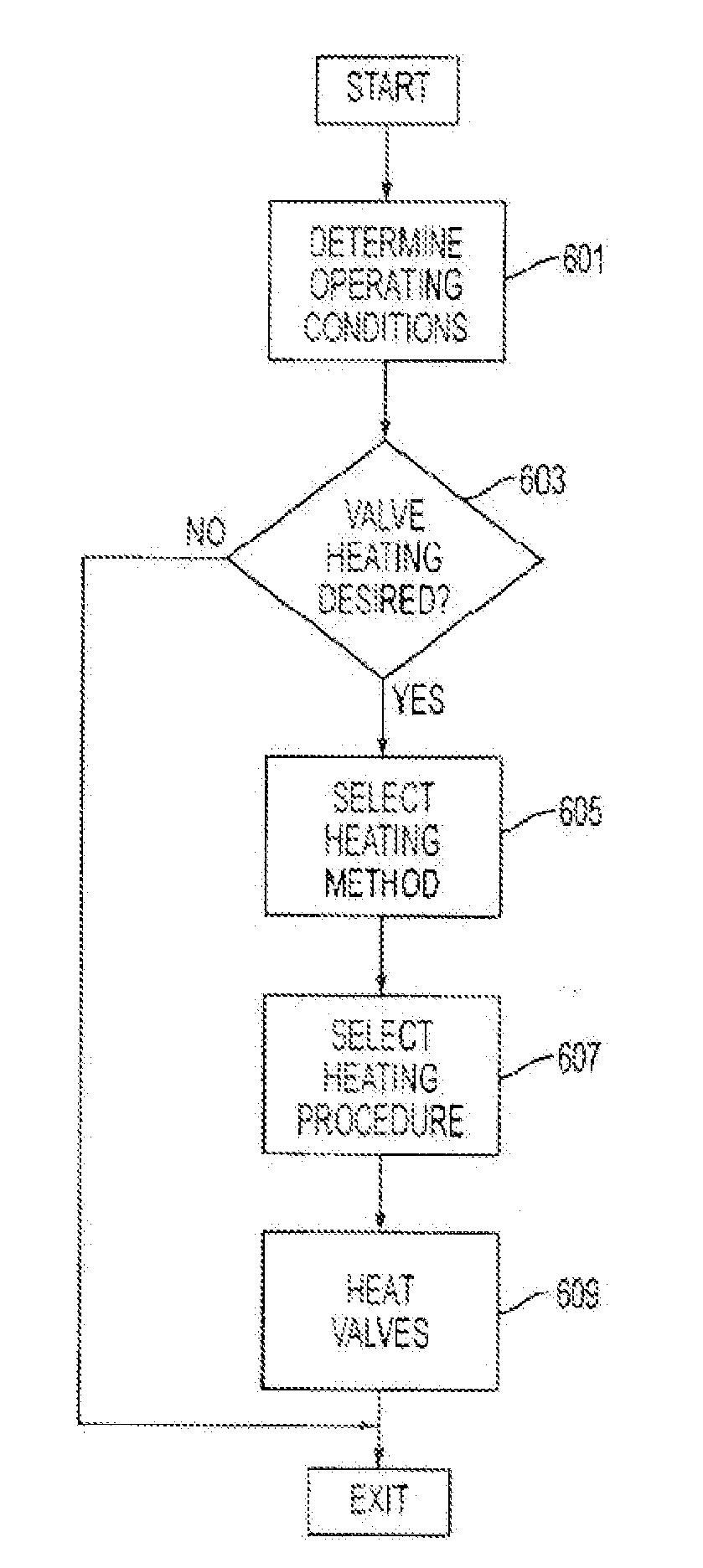Operation of electrically actuated valves at lower temperatures
a technology valves, which is applied in the direction of electrical control, non-mechanical valves, instruments, etc., can solve the problems of increasing the complexity of controlling valves under varying operating conditions, increasing the friction losses of electrically operable mechanical actuators, and increasing the number of valves. to achieve the effect of improving engine performance, efficiency and emissions, and improving engine performance and emissions
- Summary
- Abstract
- Description
- Claims
- Application Information
AI Technical Summary
Benefits of technology
Problems solved by technology
Method used
Image
Examples
Embodiment Construction
[0017]Referring to FIG. 1, internal combustion engine 10, comprising a plurality of cylinders, one cylinder of which is shown in FIG. 1, is controlled by electronic engine controller 12. Engine 10 includes combustion chamber 30 and cylinder walls 32 with piston 36 positioned therein and connected to crankshaft 40. Combustion chamber 30 is known communicating with intake manifold 44 and exhaust manifold 48 via respective intake valve 52 an exhaust valve 54. Each intake and exhaust valve is operated by an electromechanically controlled valve coil and armature assembly 53. Alternatively, intake valves may be operated by electrically operable mechanically actuated valves while the exhaust valves are operated by mechanically driven valves. In still other alternatives, other combinations of mechanical and electromechanical valves may be used. For example, a portion of intake valves may be mechanically driven while other intake valves are electrically actuated. Armature temperature may be ...
PUM
 Login to View More
Login to View More Abstract
Description
Claims
Application Information
 Login to View More
Login to View More - R&D
- Intellectual Property
- Life Sciences
- Materials
- Tech Scout
- Unparalleled Data Quality
- Higher Quality Content
- 60% Fewer Hallucinations
Browse by: Latest US Patents, China's latest patents, Technical Efficacy Thesaurus, Application Domain, Technology Topic, Popular Technical Reports.
© 2025 PatSnap. All rights reserved.Legal|Privacy policy|Modern Slavery Act Transparency Statement|Sitemap|About US| Contact US: help@patsnap.com



